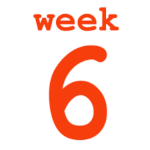Time and place
I’m annoyed at the sate of the user interface for computing these days. It’s too hard to sync or share data across applications (the ‘suite’ concept for office seems to be missing completely – little app buttons in various programs or not) and it’s both annoying and difficult to get my computer to present information to me in the way I want it. I think the root of the problem is that there is no concept of relationship in (or god forbid, between) applications. I’m constantly typing information and then retyping or cutting and pasting it somewhere else. I can’t easily clip something from one work area and put it into another. Other than folders (which are painfully annoying and take forever to sync), there’s little concept of work-group or workspace in computing today. Here’s a great example, which both shows what a bone head I am as well as how far away from ideal we are. I missed a call this week. It was a short update call with one of the companies I work with, but still I missed it and it annoyed the heck out of me (which for me means that I’m its going to be on my mind for the next week). Here’s what happened: When I travel, I put information in my calendar in the time zone of the place where I will be that day, rather than in my ‘home’ time zone. To me, this just made sense – no need to adjust for where I was when looking at my calendar. Since there’s no way in Outlook to easily change between time zones this seemed like the best plan (although I really like their feature that allows you to place a second set of times on the left side of the screen – very very helpful and even better, only six short clicks away! [sarcasm intended]). The problem, which is what messed me up today, is that when someone sends me an invite it shows up in my home time zone, so I need to remember to change the meeting in Outlook to the time zone where I’ll actually be. I forgot to do this today, looked at the meeting time, assumed that it was in the calendar in pacific time and missed the meeting.Apparently somewhere between Office v1 and Office v11, no one ever figured out that time shifting is important. There’s no ability in Outlook Calendar to set different time zones for different days (let alone w/in a single day). There’s literally dozens of time zone options to choose from, but you can only display one at a time (other than the kluge I describe above) – there’s just no concept of shifting time temporarily. I would have thought software was more well thought out than that by now . . .
Welcome to Foundry
 I send a note to each new company that I work with at Foundry that sets up what I hope will be the key tenants of our working relationship. I thought it might be fun to post it publicly – I think it gives meaningful insight into how all of us at Foundry work with the company in which we have an investment.
I send a note to each new company that I work with at Foundry that sets up what I hope will be the key tenants of our working relationship. I thought it might be fun to post it publicly – I think it gives meaningful insight into how all of us at Foundry work with the company in which we have an investment.
Why you should get stuck on "Glue"
At Foundry, we’re trying not just to respond to the conversation, or even to simply be a part of it. We’re looking to help form and shape the conversation around technology areas that we care deeply about. Maybe this sounds cheesy, but it’s absolutely true. My partners and I are technology geeks first and foremost.
To that end we’ve been lucky enough to team up with Eric Norlin to work on a few conferences that bring together thought leaders in the technology industry. I’ve written about Defrag several times – a conference that we’ve helped Eric create here in Denver in the past two years that has focused on leveraging technology to better organize, interpret and consume disparate information (thus the name "Defrag").
In 2009 we’re introducing another conference to the mix that we’re calling "Glue". If Defrag is a high level discussion about meta-information, Glue is a more nuts and bolts discussion around the actual technologies that we use to pull this information together. Presuppose the notion of cloud computing/platform as a service; assume the web as a platform. Ok – now what? Glue is going to bring together technologists to start to answer these questions. The discussion is generally going to be "below the browser" and if you check out the agenda (in process) you’ll see plenty of topic areas that relate to the details of the changing technology and architecture landscape.
Another thing that’s different about Glue is the price. I’d challenge you to find another two day event of this caliber anywhere close to this price point (a conference pass is $395). Use the code "early1" and get $50 (but there are a limited number of discounts available, so best to register now, since you know you’ll be attending).
A special note to my techgeek friends from Denver and Boulder. We’re working hard to build up this region as a real center for the conversation around emerging technologies. In my view every technologist in the region should be at this conference. Register now and show your support. This is a golden opportunity to participate in a national conversation without having to fly to one of the coasts…
The #hash economy
 Back in the late 90’s I started noticing URLs at the end of many TV advertisements. They started as general company URLs (and were relatively infrequent) and eventually because almost ubiquitous leading not just to company home pages but eventually to product pages or other ares of a company’s site were one could get more information about whatever was being hocked on TV (or in a magazine, etc.). Fast forward a few years and we saw the same phenomenon with brands and their Facebook pages. And then Twitter. These were/are great ways for brands to get more information to people interested in their products. And to some extent through Twitter and Facebook “engage” with people so inclined to interact in that way with the producers of products they like and use.
Back in the late 90’s I started noticing URLs at the end of many TV advertisements. They started as general company URLs (and were relatively infrequent) and eventually because almost ubiquitous leading not just to company home pages but eventually to product pages or other ares of a company’s site were one could get more information about whatever was being hocked on TV (or in a magazine, etc.). Fast forward a few years and we saw the same phenomenon with brands and their Facebook pages. And then Twitter. These were/are great ways for brands to get more information to people interested in their products. And to some extent through Twitter and Facebook “engage” with people so inclined to interact in that way with the producers of products they like and use.
Now we’re seeing something pretty different and I’m interested to see where it goes (and have been thinking from an investment perspective for ways to participate in it as a growing trend). What I’m referring to (which will be obvious to anyone who read the title of this post) is the emergence of the #hashtag. You see it everywhere now. And not just on advertisements, but anywhere people are trying to drive a group conversation – at the end of magazine articles, during TV shows, sporting events, cable new channels. The #hash’s are generally topic related, not brand related (CNN isn’t pushing the #CNN hash but instead pushing #Election2012; we’ll all be tweeting about #superbowl this Sunday, etc.).
And like a lot of things in this new era of the internet the #hash economy is much more democratic. No one “owns” a #hashtag and the conversation is both easy to follow and easy to participate in (for example not limited just to one social platform). I think this kind of democratization of the internet is really interesting to follow. We’ve moved from platforms for people to broadcast out, to one where people could self organize into communities (but where these communities were still somewhat siloed) to one where we’re creating horizontal overlays to the internet that allow for much broader dissemination of information and that support more free flowing communities of interest (where both the participants in the community are free flowing but also the communities themselves).
I’m not entirely sure where this will take us, but I love the notion that barriers to participation are falling and as a result more and more people are able to interact and create content. The bar for that participation has been lowered massively and the old 80/19/1 paradigm (80% passive consumers/19% responders/ 1% creators of content) has been completely flipped on its head. I’d love your thoughts on this subject as it’s been knocking around in my head for a while but I’m not sure I’ve reached any definitive conclusions about where this is heading and what that means.
Burn me!
I complained a while back about how much the feed stats in TypePad suck. I then proceeded to do absolutely nothing about it, I guess figuring that site stats were something that would be high on their priority list and they would somehow figure it out. Well, they haven’t so I have a request to make. The basic problem I have with the TypePad stats is that they don’t provide me good data on who is subscribed to my feed. About a week into writing this blog I started using FeedBurner – which has much better information about who is reading my posts. The problem is that my FeedBurner stats only capture people who subscribed after that first week – and I know that a bunch of people subscribed in the first few days after I put up my first post (a result of some shameless self promotion I did).
A few people suggested after my last post on the subject that I simply ask people to re-subscribe to the feed using my new FeedBurner URL. I put that off for a few months, but I think its time. My request is simple – would you check the source URL for your subscription to this feed. I would appreciate it if you could make sure it is:
http://feeds.feedburner.com/VC_Adventure
Thanks.
The Buzz about HiveLive
My friend John Kembal recently started a company – HiveLive – that facilitates communication between groups (friends, co-works, clubs, associations, etc.). The system looks like a social networking site, but allows you to upload more relevant information to your “Hive” and control better how you share it (i.e., its both a personal organization tool as well as a tool for communicating and sharing ideas across a group of people – kind of a cross between a blog, social network and wiki). They are in beta, but John has set up a site for VC Adventure readers to sign up – http://hivelive.com/join/vcadventure (click on the link and you’ll be taken to the sign-up page).
You can e-mail me or John with your thoughts.
Note: Mobius is not an investor in HiveLive, nor am I affiliated with the company in any way other than being a fan of John and a user of the service.
Weighing in on Judge Gorsuch
 A number of people have asked me to share my views on Neil Gorsuch in more detail. I’m sure the curiosity stems from the intersection of my personal relationship with Neil and my absolute disdain for President Trump. I am aware given the current political climate that views on this are very polarized. And while a SCOTUS pick will always stir up emotion, the combination of the hyper polarized environment along with the backdrop of Merrick Garland not getting even a hearing for the same seat I know many people who are very angry about the prospects of Trump filling what was Obama’s seat to fill.
A number of people have asked me to share my views on Neil Gorsuch in more detail. I’m sure the curiosity stems from the intersection of my personal relationship with Neil and my absolute disdain for President Trump. I am aware given the current political climate that views on this are very polarized. And while a SCOTUS pick will always stir up emotion, the combination of the hyper polarized environment along with the backdrop of Merrick Garland not getting even a hearing for the same seat I know many people who are very angry about the prospects of Trump filling what was Obama’s seat to fill.
By way of background and to be completely clear, while I know Neal, I don’t want to overstate our relationship. He lives nearby and we’ve had a chance to spend time socially together. We are friendly, but I wouldn’t describe us as friends. I’ve met his wife Louise several times as well and about a month before Neil was nominated, Greeley, Louise, Neil and I had dinner with another couple (at the time I knew that Neil was somewhere in line for SCOTUS but actually hadn’t realized that he was on the short list). I have never and would never ask Neil his views on specific legal issues as that wouldn’t be appropriate.
And to be very clear my views on Trump and his policies, I truly detest the man. I’ve been extremely clear about this on my Twitter feed as well as in this post I wrote a month ago. Daily, I find myself dismayed by the both man himself as well as many of his policies. And while I don’t consider myself a partisan, I am a staunch supporter of individual liberties, equality and equal protection under the law. I am strongly pro-choice and emphatically in favor of marriage equality, among other key issues. My read of the constitution suggests that none of these issues are so called “states rights” issues, but instead are clearly protected federally under both precedent law and the constitution.
It’s hard for me to imagine a better Republican choice for SCOTUS than Neil. In fact, nominating him was by far the single best thing Trump has done as President. The test for a supreme court nominee should NOT be whether they agree with your political views, nor whether they will adjudicate the way you would. That’s simply partisan politics and the court should be above that. Instead we should evaluate supreme court nominees by their qualifications for the job. Are they prepared by their background to face the responsibilities of the highest court? Are they temperamentally suited to the position? Will they approach cases dispassionately and with an open mind? I have absolutely no doubt that Neil is absolutely and completely qualified across all of these factors and more. And while there’s no doubt that Neil is a conservative judge, I believe he’s actually much more open minded than he’s being given credit for in the press. And while he’s an originalist he doesn’t, in my view, believe this means that the constitution should be interpreted strictly as the writers then current views would suggest (he’s said very clearly, for example, that a number of the framers were racist and sexist – that doesn’t allow a judge interpreting the law today to do so through those lenses). Will Judge Gorsuch rule in every case the way I might? Absolutely not. Will he at times, in my estimation, surprise us. Absolutely. Without a doubt Neil is an independent thinker, a kind and gentle person and a calm, rational interpreter of the laws. I think that’s exactly what we need on the Supreme Court right now.
The Week 6 Slump
 I wrote a couple of weeks ago about settling in and some of the challenges of accepting what is now our new normal. Covid-19 has completely upended everyone’s life and created a massive amount of uncertainty. But, at the time, I wrote that it felt like things were starting to settle in – that many were getting used to their new routines and accepting, if not embracing, the lack of clarity around the future. Rolling forward to this week and it feels like this has changed a bit – at least temporarily. During a number of conversations this week, I’ve noticed a difference in how people are feeling, and to the acceptance that I think most of us had internalized up until now.
I wrote a couple of weeks ago about settling in and some of the challenges of accepting what is now our new normal. Covid-19 has completely upended everyone’s life and created a massive amount of uncertainty. But, at the time, I wrote that it felt like things were starting to settle in – that many were getting used to their new routines and accepting, if not embracing, the lack of clarity around the future. Rolling forward to this week and it feels like this has changed a bit – at least temporarily. During a number of conversations this week, I’ve noticed a difference in how people are feeling, and to the acceptance that I think most of us had internalized up until now.
People have started hitting a wall.
Frustrations are coming from different places: There is uncertainty about when we might be able to start moving around more freely. There is conflicting advice about when and how things will open up (in Colorado for example, the state has one set of guidance, my county has another set; other states are already open while California has said they’ll be closed through at least June 1st; and to add to that confusion there is zero guidance and leadership coming from our national government). Parents, many of whom have been trying to balance work, parenting and being school teachers, are getting frustrated and worn down; on top of that, they don’t know what’s coming this summer and if their kids will be able to go to camp. Everyone has a certain sense of being tired of the same scenery every day as well as a continued overarching concern about others in our community and about our economy more generally (today’s GDP news was just a harbinger of what will be unprecedented contraction when the Q2 numbers come out). Many of us now know people who have not only gotten sick from COVID-19 but know someone who lost a family member or close friend. And on top of all of that is the lack of clarity about when things will really begin to change (my partner Brad wrote an excellent post on the disorientation this is causing a few days ago).
I think it’s important to acknowledge that this monotony and constant worry is hard. Given how frequently I’ve heard people talk about this this week, I’ve started calling it the “Week 6 Slump”. I don’t know what the magic is about week six but if you’re feeling this way, you’re not alone. And while I know we still have weeks – perhaps months – of this left, I do know we’ll get through it. Hang in there.
Colorado is Opening Up. Foundry is not. Here’s our Thinking.
 In mid-March, I wrote a post about how Foundry Group had joined a number of other businesses in the early adoption of work from home and other practices to stem the spread of COVID-19. We recognized that this would be an essential part of helping create social distance and by doing so, flattening the curve.
In mid-March, I wrote a post about how Foundry Group had joined a number of other businesses in the early adoption of work from home and other practices to stem the spread of COVID-19. We recognized that this would be an essential part of helping create social distance and by doing so, flattening the curve.
As Colorado and many other states are moving to a more relaxed set of policies (although Denver and Boulder are waiting a few more weeks until they follow the rest of the state), we’ve decided that for Foundry we’ll continue our work from home policy until at least the end of May (Brad’s post on that here). We’re doing this because we’re in the fortunate position where we can and we’re being public about it because we’re hoping other businesses that are in a position to do so will do the same. We’re fortunate at Foundry to operate the kind of business that works well remotely and although we miss seeing each other in the office and the natural collaboration that happens when we’re all there, our business functions pretty much normally even when we’re all remote. And, like other businesses, we’ve been very deliberate about trying to replicate our in-office dynamic online (for us that includes several weekly stand-ups, extended time together on Mondays as well as ad hoc “cocktail/mocktail hours”. We also recognize that there are many businesses that need to open up sooner and we feel that they should take priority over companies like Foundry that can continue working from home without big disruptions to our operations.
If you are running a company that is similarly situated, we hope that you will follow suit and wait a bit longer to open up. We’re going to reevaluate opening up at the end of May and decide if it’s appropriate for us to re-open the office in early June or if we should extend our work from home time even further. The more effort we put into mitigating this crisis, the more flexibility we will have later in the summer to get things back to normal.
Occam’s Paradox
Remember Occam’s Razor? It’s the principle (that you probably learned in high school physics) that states that the simplest solution to a given problem is probably the best. I’ve been thinking recently about complexity in business and in life and think there’s a corollary to Occam’sRazor that perhaps should be called Occam’s Paradox – the propensity of humans to make things more complicated than they need to be. I don’t pretend to know why this is, but I notice it all the time (both in my own life and with other people). I guess it’s just easy to start down the road of dependency mapping (i.e., making everything you do a part of a larger matrix that has many interdependencies). I watch this tendency in the companies I work with as well. Lots of dependency mapping; lots of “if’s”, “but’s” and “its not that simple”. Now – I get that life and business are complicated. But I’m talking about how we react to that complexity. We have the choice to either drown in complexity or to cut through it, because although the challenges we face in life and business are clearly complex – the solution to those challenges generally are not (generally the difference is in recognizing what you control and what you don’t control and not wasting a whole lot of time on the latter – perhaps a subject for a future post).
Keep that in mind the next time you are sitting around the board table or at a management meeting (or at dinner with your family) and see if you relate to it (let me know).

